Form Ct-1040 Nr/py - Connecticut Nonresident And Part-Year Resident Income Tax Return And Instructions - 2011 Page 33
ADVERTISEMENT
Who Must Use the Employee Apportionment
• Nonresident
Worksheet
Enter the result here and on Schedule CT-SI, Line 1.
If your employment required you to perform services both
Example: An auditor living in Massachusetts is employed by
inside and outside Connecticut and you do not know the actual
an accounting fi rm in Hartford at an annual salary of $33,000.
amount of income you earned in Connecticut, you must use
She works a total of 240 days in 2011, performing fi eld audits
the Employee Apportionment Worksheet if you fi t into any of
in Rhode Island on 160 days of the year and working 80 days in
the categories listed below:
Hartford. Her Connecticut adjusted gross income derived from
1. An employee who is compensated on an hourly, daily,
or connected with sources within this state is $11,000 computed
weekly, or monthly basis;
as follows:
2. An employee whose compensation depends upon sales, at
80
$33,000 x
= $11,000
least some of which take place outside of Connecticut; or
240
3. An employee whose compensation is based on miles.
How Do I Complete the Employee Apportionment
Basis If Other Than Working Days
Worksheet
If you are using the sales or mileage basis, substitute sales
If you qualify to use the Employee Apportionment Worksheet,
or mileage for working days and complete all items in the
select the appropriate basis and follow the instructions. If you
worksheet except Line D. Indicate what basis you are using in
have more than one job requiring the use of the worksheet,
the space provided and enter your Connecticut income from
complete a worksheet for each job.
Line G on the appropriate line(s) of Schedule CT-SI.
Working Day Basis
Sales Basis
Employees who qualify to use the Employee Apportionment
Where compensation of a salesperson, agent, or other employee
Worksheet and who are compensated on an hourly, daily, weekly,
is based in whole or in part upon commissions from sales,
or monthly basis should use the working day basis to apportion
Connecticut adjusted gross income derived from or connected
their income. The income of these taxpayers is apportioned to
with sources within Connecticut is determined by multiplying
Connecticut in the same proportion that the amount of time
the gross compensation earned from sales everywhere,
spent working in Connecticut bears to the total working time.
determined as if the nonresident were a resident, by a fraction.
The numerator is the amount of sales made within Connecticut
Line A: Working Days Outside Connecticut
and the denominator is the amount of sales made everywhere.
Enter the number of days you worked outside of Connecticut.
The amount of sales is determined on the same basis as that on
which the amount of sales is determined for purposes of fi guring
Line B: Working Days Inside Connecticut
the individual’s commissions. The determination of whether sales
Enter the number of days you worked inside of Connecticut.
are made within Connecticut or elsewhere is based upon where
Working days do not include days on which you were not
the salesperson, agent, or employee performs the activities in
required to work, such as holidays, sick days, vacations, and
obtaining the order, not the location of the formal acceptance
paid or unpaid leave. If you spent a working day partly inside
of the contract.
and partly outside of Connecticut, treat the day as having been
Mileage Basis
spent one half inside Connecticut.
Where an employee’s wages are based on mileage, Connecticut
Line C: Total Working Days
adjusted gross income derived from or connected with sources
Add Line A and Line B and enter the total on Line C.
within this state is determined by multiplying the employee’s
Line D: Nonworking Days
gross wages, determined as if the nonresident were a resident,
wherever earned, from the employment which includes
Enter your nonworking days. Your nonworking days are those
employment carried on in Connecticut, by a fraction. The
days during the year (or during the period you worked if your
numerator is the employee’s total mileage traveled in Connecticut
job lasted less than a year) that you are not required to work,
and the denominator is the employee’s total mileage upon which
such as Saturdays, Sundays, holidays, sick days, vacation, and
the employer computes total wages.
leave with or without pay.
Line E: Connecticut Ratio
Schedule CT-1040AW Instructions
Divide Line B by Line C and enter the result on Line E.
General Information
Line F: Total Income Being Apportioned
Part-year resident individuals must complete Schedule
Enter your total income from employment earned both inside
CT-1040AW, Part-Year Resident Income Allocation, to
and outside of Connecticut.
calculate Connecticut-sourced income for the entire taxable
Line G: Connecticut Income
year. After completing Schedule CT-1040AW, add the amount in
Column B to the amount in Column D and transfer each total to
Multiply Line E by Line F.
the corresponding line of Schedule CT-SI.
• Part-Year Resident
Enter the result here and on Schedule CT-1040AW, Line 1,
Column D.
Page 33
ADVERTISEMENT
0 votes
Related Articles
Related forms
Related Categories
Parent category: Financial
 1
1 2
2 3
3 4
4 5
5 6
6 7
7 8
8 9
9 10
10 11
11 12
12 13
13 14
14 15
15 16
16 17
17 18
18 19
19 20
20 21
21 22
22 23
23 24
24 25
25 26
26 27
27 28
28 29
29 30
30 31
31 32
32 33
33 34
34 35
35 36
36 37
37 38
38 39
39 40
40 41
41 42
42 43
43 44
44 45
45 46
46 47
47 48
48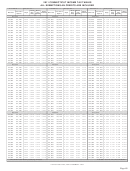 49
49 50
50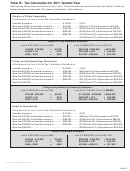 51
51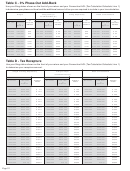 52
52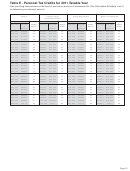 53
53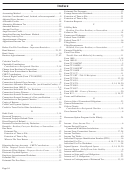 54
54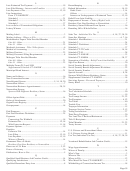 55
55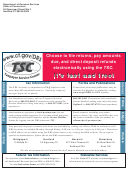 56
56








